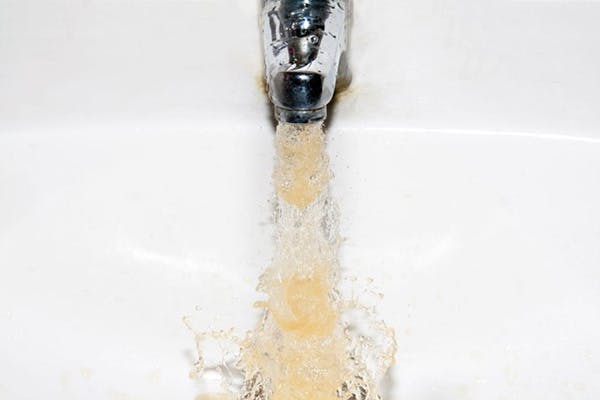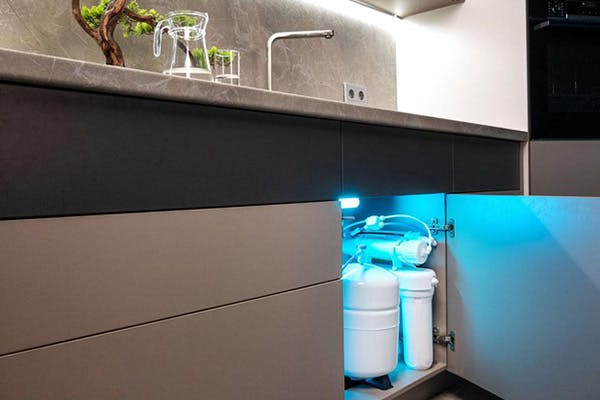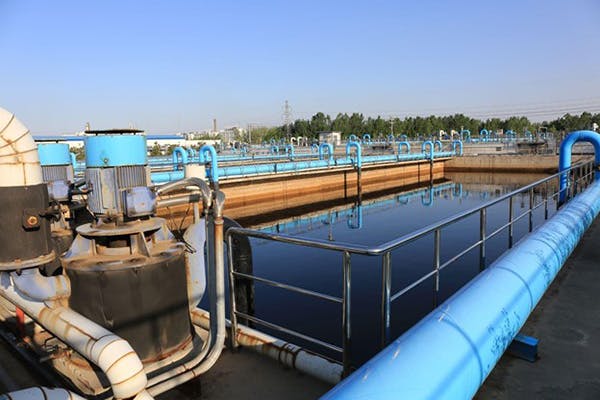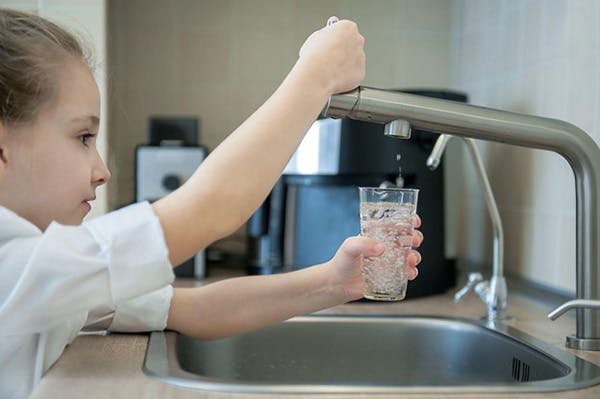🌟 New Arrival! Upgrade Your Water with Our Advanced Pitcher Filter. Shop Now
September 2022
How Water Filters Work and Why You Need One
Clean, crystal-clear water is more than just a catchphrase we might see in an advertisement — it’s our expectation of what water should be.
Clean water is a cornerstone of healthy living. The Mayo Clinic recommends a daily intake of 15.5 cups of fluids for men, and 11.5 cups for women. But as important as water is to our health, it’s just as important to offset the potentially harmful effects (and occasionally foul taste) of most tap water.
Many of us may already be convinced of the importance of clean water, and might rely on bottled water to stay hydrated. Don’t fall for this trap! Bottled water is much more expensive than tap water, and it’s also an unmitigated environmental disaster.
So what is the best way to enjoy great-tasting, clean water without breaking the bank or pillaging the planet? The answer is simple: Use a water filter to remove impurities as water exits your tap.
Let’s take a look at how water filters work and what their myriad benefits are.
How Do Water Filters Work?
At the most basic level, most water filtration works by setting up physical barriers for water to pass through. As the water passes through these barriers (often a membrane, sieve, or sometimes an ion exchange process), sediment and impurities are captured, leaving only clean, filtered water.
Water can also be purified through distillation, which is achieved by heating water to its boiling point. Any particles collected in the water vapor while at a lower temperature are eliminated, along with any other remaining impurities left in the container after the water has evaporated. The resulting water after this process lacks contaminants and is considered clean.
What Do Water Filters Remove?
Not all water filters are the same, and different filters will remove different types and categories of impurities.
Impurities in contaminated water can include nitrates, iron, bleach, viruses, and parasites. Though the EPA regulates drinking water quality, contaminants may still be found in tap water, resulting in water that can be hazardous to our health or unpleasant to taste.
Water filters in your household can remove contaminants like the chlorine and chloramine found in most tap water, and carbon blocks can help remove odors from your tap water for better tasting water.
Types of Water Filter Systems
One of the most important advantages of modern living is also one of the most underappreciated: the ability to turn on the tap to start water flowing from our faucets. But if we’re using our tap water for drinking water, we may be running the risk of drinking any number of contaminants.
This is where water filtration systems really shine. Water filters trap unwanted contaminants, sediment, heavy metals, bleach, and other substances using several methods. Whole house water filters can work as water filtration systems that make it easy to drink the amount of water required to keep you healthy.
There are a wide variety of water filter systems out there. Let’s run through some of the most common home water filters you’re likely to come across:
Reverse Osmosis Filters
Reverse osmosis is a type of filtration that can be difficult to explain. The process of reverse osmosis occurs when water flows through a porous membrane in the opposite direction to natural osmosis. In doing so, impurities are removed.
The list of impurities that reverse osmosis can remove is long. Reverse osmosis filters can remove copper, chloride, chromium, lead, and sodium from water. They can also reduce concentrations of arsenic, calcium, fluoride, magnesium, nitrate, phosphorus, potassium, radium, and sulfate.
This type of water filter is especially effective in removing arsenic from well water. This is worth using if you rely on well water — fertilizers and industrial waste can easily seep into your well water from old uncontrolled fertilizing methods and chemical plants in the area.
Activated Carbon Filters
Activated carbon filters are commonly found in households. Usually, an activated carbon filter is installed under-sink, and it removes contamination from that one particular faucet. These types of filters are also used to keep aquarium water free of toxic substances that can kill fish.
Refrigerator Water Filters
Many modern refrigerators come with refrigerator water filters installed. These are better than nothing, because they can pull out some of the harmful contaminants in tap water and ice dispensed by the refrigerator.
However, the replacement cartridges for refrigerator water filters are specialized and can be expensive. These filter cartridges can also be difficult to replace, depending on the make and model of the refrigerator.
Water Filter Pitcher
Easy to use but not all that effective, water filter pitchers (Brita is one of the most common brands in this space) can be used as countertop water filters. These eliminate many contaminants that leave a bad taste in your mouth, such as chlorine and hydrogen sulfide.
This type of system requires replacement filter cartridges that are inserted into specialized water pitchers, which then act as water purifiers. Pitcher filters aren’t made to eliminate bacteria and viruses, so while they’re convenient countertop water filters, they won’t provide truly clean water.
If you decide to use a pitcher water filtration system, make sure you consider the cost of replacement water filters in your decision. Many pitcher filters need to be replaced very frequently, with the filter losing functionality and flow rate after as little as 40 gallons. You’ll need to replace those filter cartridges and the cost can add up quickly.
Under Sink Filters
If you’re looking for the simplest way to ensure the water coming out of your faucet is completely clean and free of contaminants, under counter filters are the way to go.
These filters can eliminate chlorine, volatile organic compounds (VOCs), heavy metals, calcium, and lead, and best of all, you can install under sink filters on your own. If you’re renting, there’s no better water filter system you can choose.
Whole House Water Filters
Whole house water filters are, without a doubt, the best water filter systems available for home use.
Whole house water filters provide more stages of filtration than under sink water filters, and best of all, they provide clean water throughout the house. In addition to clean drinking water, whole house water filters ensure the water you use to bathe is free of contaminants as well, which is good for your skin and hair.
A whole house water filter needs to be installed by an expert, and it’s likely not an option for renters. If you own your house and you want clean water from every faucet and tap in the house, then a whole house water filter system is the right choice for you.
What Are the Different Steps of Water Filtration?
To understand how water filters work, we need to start at the beginning: Tap water originates as groundwater or surface water that flows into lakes, rivers, streams, aquifers, or any number of bodies of freshwater.
Before treatment, water can contain any number of pathogens at the micron level that are capable of making us sick. Because of this, water needs to be filtered and treated before we drink it. Ideally, this filtration occurs at two locations: first, in a water treatment plant, and second, in the home.
To start, water is pulled from the environment and processed at water treatment facilities to eliminate impurities. This is done in two primary ways:
1. Water Treatment Plant Filtration
Sediment deposits are trapped by sediment filters and removed from the water. Water passes through a variety of different filters that are all designed to pull different materials, most of which are measured in microns and are invisible to the human eye.
Some water treatment plants will use reverse osmosis systems to further filter out impurities. Water is also often passed through carbon filters to remove any foul odors.
2. Water Treatment Plant Disinfection
After filtration, water is then treated with chemicals like chlorine, chloramine, or chlorine dioxide. Water can also be disinfected with ultraviolet light.
These chemicals kill most parasites, viruses, bacteria, and pathogens, but treatment plants intentionally leave behind a small amount of chemicals in the water. These chemicals continue to treat the water as it leaves the water treatment facility and flows to your local water authority, and from there to your household.
3. Home Water Filtration
At this point, water has arrived at your home and is pouring from your faucet. Still, harmful contaminants may remain in your tap water. For this reason, the installation of an effective home drinking water filter is recommended.
What Are The Benefits of Using a Water Filter?
As we mentioned above, a whole house water filter is the best way to avoid water contamination that not only affects your health and skin, but that also has an unpleasant taste. Take a look at the top seven benefits of installing a whole house water filter in your home:
1. Clean Tasting Water That You Can Safely Drink at All Times
Avoid chemicals or metals that will cause havoc with your health. The taste of clean water is enticing, which also promotes health and performance by regulating body temperature.
2. Glowing, Healthy Skin
Say goodbye to harmful deposits that will clog pores and even cause acne. Your nails will maintain a healthy and strong appearance, not the yellow tint associated with hard water.
3. Healthy Hair
Who doesn’t want radiant hair and vibrant color? Chemicals in water can change your natural and dyed hair color by adding green and rusty orange hues and causing hair breakage. Not only that, it can slow down hair growth and weaken eyelashes.
4. Laundry That’s Fresh and Keeps Its True Color
The chlorine and other metals found in unfiltered water can damage clothing and yellow whites, also causing harsh odors every time clothing gets a little wet — think towels in the bathroom.
5. Healthy Gut
Increase the health of your digestive system when consuming parasite-free water. Bacteria, parasites, and viruses can cause problems in your stomach, gut, bladder, and other organs.
6. Cut Plumbing Repair Costs
Metals, minerals, and chemicals in water can damage a household’s plumbing. Even worse, they can rust pipelines and increase the contamination in the household water. Products such as a salt-free water conditioner can materially reduce scale build-up on appliances, without monthly upkeep or the addition of salt pellets. Such conditioners work to minimize the scale-producing minerals often found in municipal water supplies and plumbing lines.
7. Make a Difference in the Environment
Polyethylene terephthalate (PET) plastic is not biodegradable — it’s photodegradable, which means that over time it breaks down into smaller particles that are still a source of contamination. Hence, taking your own filtered water in reusable and biodegradable containers made of plant-based plastic, glass, or ceramic is a great solution to the massive contamination that plastic bottles leave behind.
What Water Filter Should I Get?
Depending on the quality of your water, whether you own or rent your home, and the health of your household’s members, you may want to consider either an under sink water filter for one faucet, or a whole house water filter.
A whole house water filter is the obvious solution to living with harmful water that affects more than one member of the household’s health. A continuous supply of filtered water throughout your whole house benefits everyone, whether they’re showering, drinking water, or brushing their teeth.
Contact HomeWater today for more information about installing an under sink or whole house water filter in your home, and let us be the ones to keep your water clean and crystal-clear.
Brought to you by homewater.com
All images licensed from Adobe Stock.



